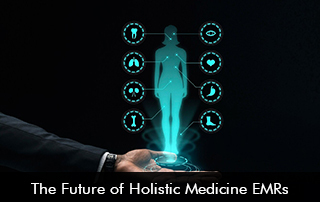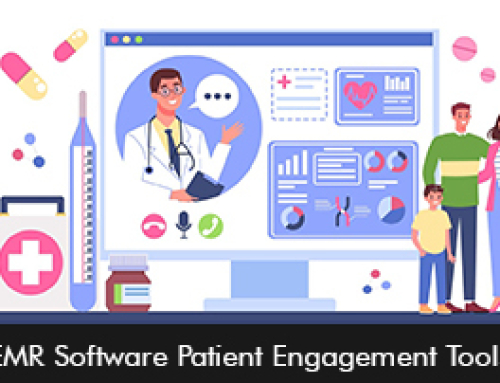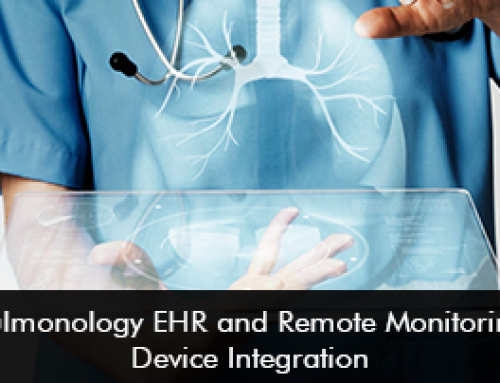Holistic medicine emphasizes integrative approaches—combining conventional diagnostics with naturopathy, acupuncture, herbal medicine, mindfulness, and nutrition. Because patients often follow complex, longitudinal care plans, holistic EMR Software must be highly customizable, enabling detailed tracking of vitals, supplements, stress levels, lab results, and therapeutic interventions—all in one seamless platform. These systems don’t just store data: they support continuity by charting progress across months or years, allowing practitioners to identify patterns, refine protocols, and engage patients with tailored educational materials and secure messaging.
Understanding Holistic EMR Software & the Holistic Field
Holistic EMR software are specifically designed to support practitioners who treat the whole person—addressing physical health alongside nutrition, mental wellbeing, lifestyle, and alternative therapies. When combined with robust EHR Software features—like interoperability, billing integration, and telehealth—holistic EMRs become essential tools for delivering comprehensive, person-centered care.
Spotlight on the Latest Innovations in Holistic EHR Software
-
AI Integration with ChatEHR:
- Stanford Medicine launched ChatEHR, an AI-powered tool that allows clinicians to interact with medical records through natural language.
- Physicians can ask questions like “What supplements has this patient taken in the past year?” and get instant responses.
- This dramatically speeds up chart review and decision-making, supporting more time-efficient holistic consultations.
-
WHO’s Global Digital Dashboard for TCIM:
- The World Health Organization released a new dashboard to track Traditional, Complementary, and Integrative Medicine (TCIM) policies worldwide.
- Supports data collection, research, and global recognition of holistic practices.
- Encourages EMR software companies to develop features aligned with standardized integrative medicine frameworks.
-
Focus on Real-Time Analytics:
- Holistic EMR Software is incorporating more advanced dashboards to track supplement efficacy, patient engagement, and outcome trends.
- These tools help practitioners refine care plans based on evidence, not just intuition.
Why EMR Software Matter in Holistic Medicine
- EMR Software and EHR Software play a pivotal role—especially within holistic, integrative, and functional medicine.
- These systems enable practitioners to document everything from lab results to lifestyle factors—stress levels, nutrition, mental health—supporting a whole-person approach.
- With rising patient expectations for personalization and continuity, EMR Software has evolved from mere record-keeping to powerful tools that streamline workflow, support telehealth, and engage patients.
- EMR Software geared toward holistic practitioners includes custom charting, SOAP notes, and integrative medicine evaluations.
- Holistic EHR Software allows tracking of therapies like acupuncture, herbal remedies, nutritional counselling, yoga, and more.
- Rich, specialty-focused templates support long-term care plans across months or years—key for integrative practices.
- Workflow automation reduces repetitive tasks, freeing clinicians to focus on patients rather than paperwork.
-
Integrated Lab Ordering & Results
- Leading EHR Software for holistic care seamlessly order labs and import results—ideal for functional assessments (hormones, gut health, food sensitivity tests).
- Custom lab panels streamline diagnostic workflows, auto-mapping results into patient charts.
- This integration supports data-driven interventions and long-term tracking of health improvements.
-
AI-Powered Assistance
- AI is transforming EMR Software by suggesting diagnoses, flagging alerts (e.g. drug–herb interactions), and boosting charting efficiency.
- Some systems offer voice-transcription and auto-follow-up reminders—saving time and reducing burnout.
- AI chatbots within EHR Software can now handle appointment bookings and answer basic patient queries.
-
Enhanced Interoperability & Blockchain Security
- Today’s EMR Software increasingly supports interoperability—sharing records across labs, pharmacies, and other providers.
- Some cutting-edge EHR Software even explores blockchain for secure, tamper-proof health data exchange.
-
Telehealth & Patient Engagement Tools
- Modern EMR and EHR Software include HIPAA-compliant video-integrated telemedicine.
- Patient portals allow secure messaging, access to care plans, educational materials, and appointment/habit tracking.
- Reminder systems via email/text help support continuity and nutritional compliance in holistic care plans.
-
Cloud-Based Access & Remote Capabilities
- Cloud-based EMR Software provides anytime, anywhere access—ideal for practitioners on the go.
- Systems offer 99.999% uptime with strong encryption, reducing infrastructure costs and IT overhead.
-
Billing & Practice Management
- EMR Software now integrates billing, CPT/ICD-10 coding, e-prescriptions (including controlled substances), and revenue cycle management.
- Tools automate claims, invoice patients, and track payments—liberating practitioners from administrative burdens.
-
Analytics & Outcome Tracking
- Holistic care thrives on measuring outcomes—EMR Software dashboards provide real-time visibility into patient progress, appointment volumes, and key metrics.
- Analysis tools help fine-tune protocols and identify care gaps or population trends.
Top 5 EMR Software & EHR Software for Holistic Medicine
-
Praxis EMR
- A top-rated AI-powered EHR Software driven by “concept processing,” allowing free-text charting—no rigid templates.
- Adapts to each physician’s style, increasing efficiency; saves 2–3 hours per day.
- Ideal for integrative medicine due to its flexibility—supports detailed holistic assessments.
- Cloud-based, MACRA and CMS-certified—ensures regulatory compliance.
-
Epic EMR
- Widely adopted by hospitals, Epic excels at interoperability, allowing seamless exchange of lab, imaging, and pharmacy data.
- Comprehensive EHR Software with strong analytics and population health tools.
- Highly secure and scalable—suitable for both large integrative centers and multi-site practices.
- Includes robust patient portal capabilities and telehealth integration.
-
Athenahealth EMR Software
- Cloud-native EHR Software known for user-friendly interface and deep customization.
- Integrates lab orders, e-prescribing, actionable reminders, and patient engagement tools.
- Strong billing and revenue cycle management minimize claim denials.
- Built-in telemedicine and secure messaging enhance holistic care delivery.
-
eClinicalWorks EMR Software
- A leading all-in-one EMR Software with telehealth, lab integration, e-prescribing, and reporting tools.
- Highly customizable templates for integrative assessments.
- Includes patient portal, chatbot triage, and AI-backed analytics.
- Scalable from solo practices to hospital networks—adapts to evolving needs.
-
Cerbo EHR Software
- Designed specifically for integrative and functional medicine—offers flexible charting, lab ordering, and self-service portals.
- Integrates nutrition, herbal supplements, and lifestyle modules directly into patient charts.
- Supports telehealth and mobile access, making it ideal for modern holistic practices.
- Clean, intuitive UI and secure data storage simplify user experience and compliance.
Looking Ahead
- Future holistic EMR Software will increasingly rely on AI‑driven insights, blockchain-level security, and cross‑platform interoperability.
- Added features like voice-to-text notes, chatbots, and analytics will further free clinicians to focus on healing, not paperwork.
- As telehealth and patient empowerment continue to grow, robust EMR Software tailored for integrative, functional, and holistic practices will remain indispensable.
- For practitioners seeking top-tier EHR Software in the U.S., the five systems listed above—Praxis, Epic, Athenahealth, eClinicalWorks, and Cerbo—are widely respected and fit holistic care models.
By embracing these advanced EMR and EHR Software platforms, integrative medicine clinicians can deliver deeper, data-rich treatments with enhanced patient engagement—supporting a future where holistic health and efficiency go hand in hand.








